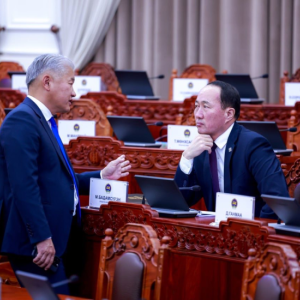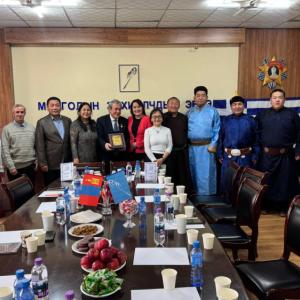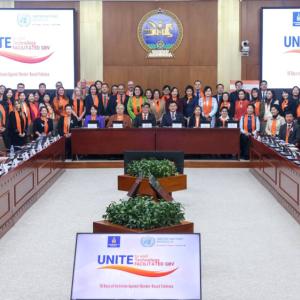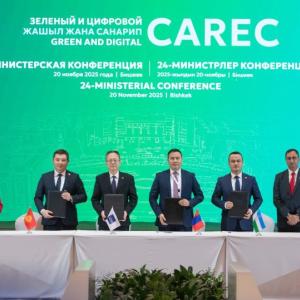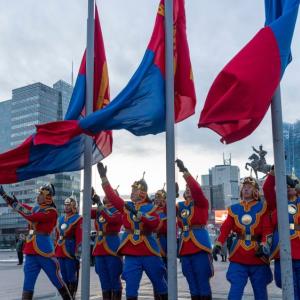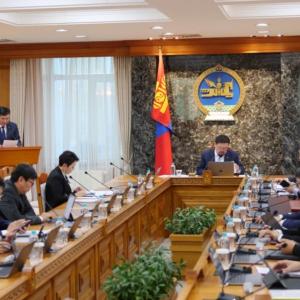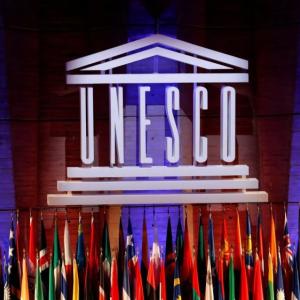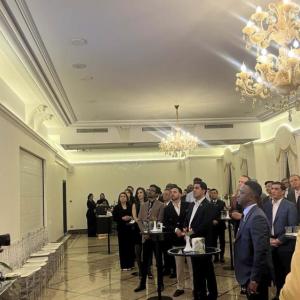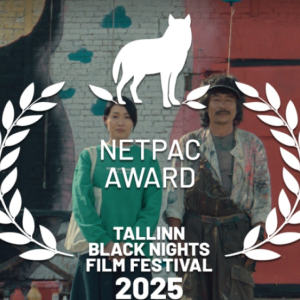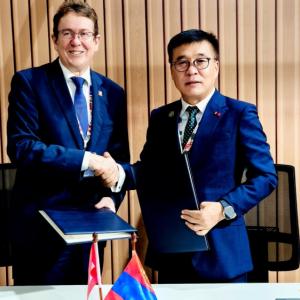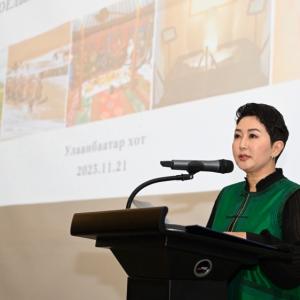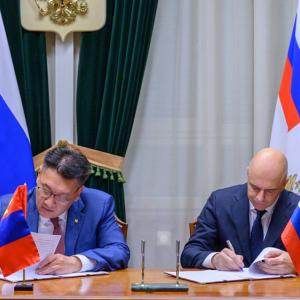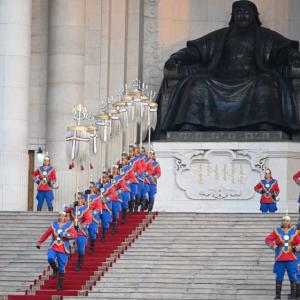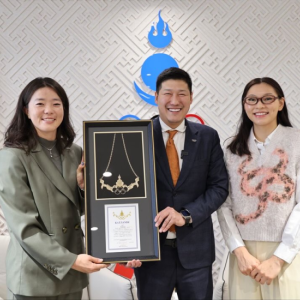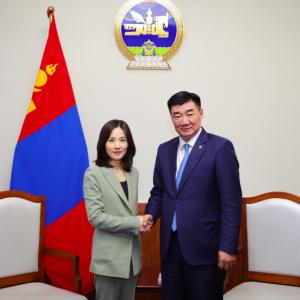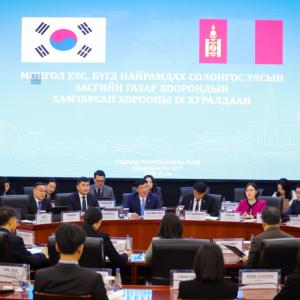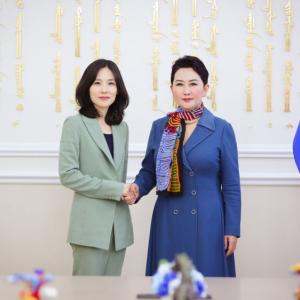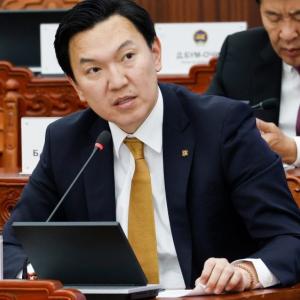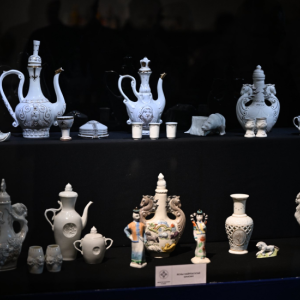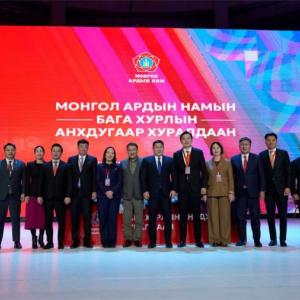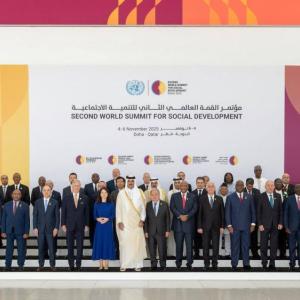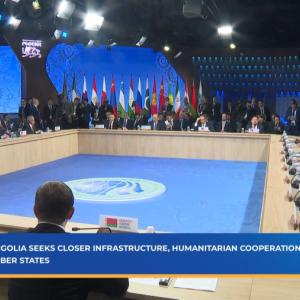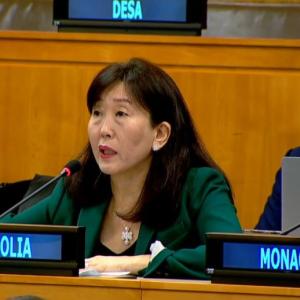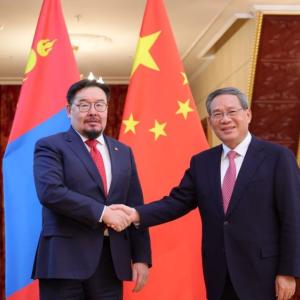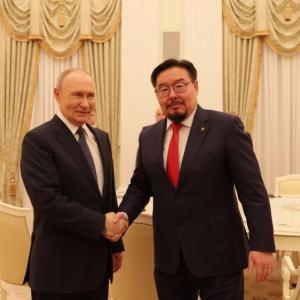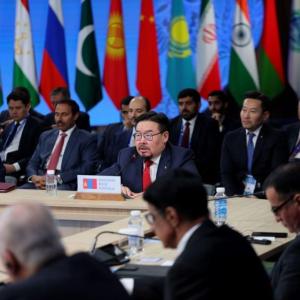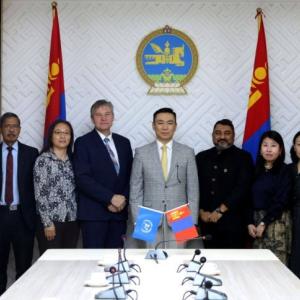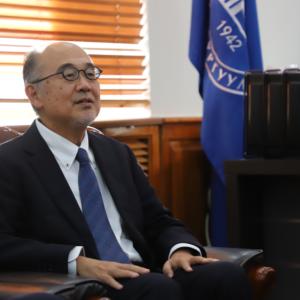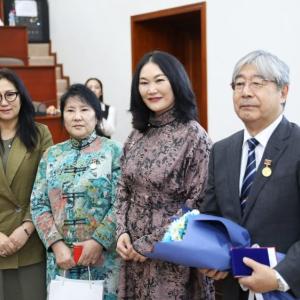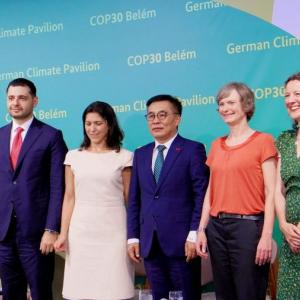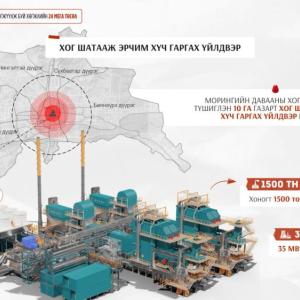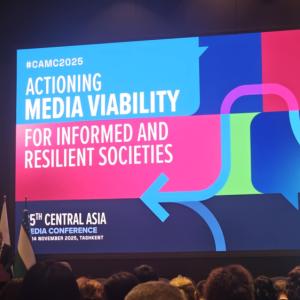Mongolia and Russia: Yesterday’s trustworthy friend and tomorrow’s reliable partner
Society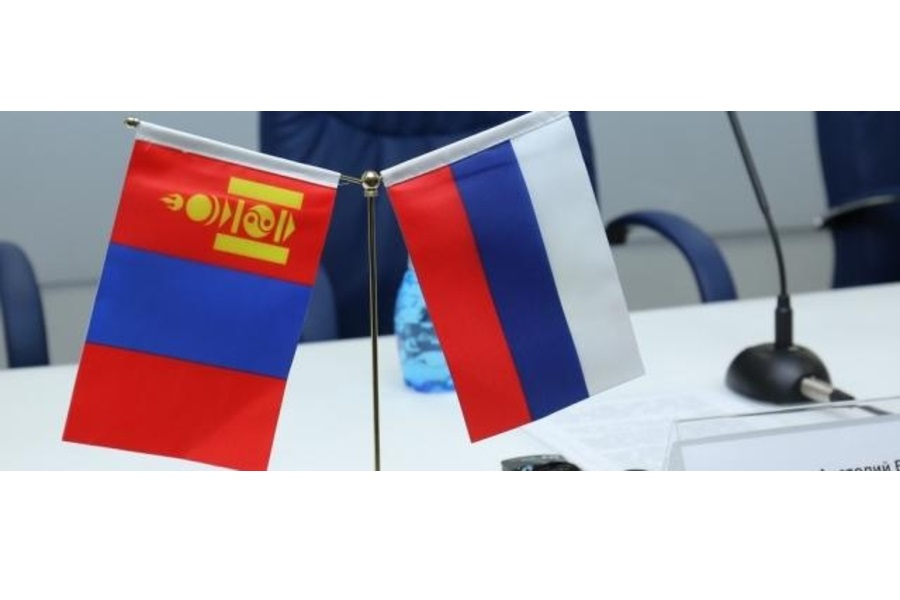
By G.Khulan
Various factors are taken into account for successful economic cooperation, such as what the conditions are for cooperation, for how long the sides will cooperate, what the benefits are for cooperating, and when to make compromises in the economic sector on the international level. Alongside being based on various levels of globalized industries, the global economic system involves all countries of the world. Unfortunately, the large-scale system gives out both wins and losses. By choosing an unreliable partner, the country’s foreign debt greatly increases and is put in a position to agree to conditions that are not profitable. If poor decisions are made by authorities for the area of cooperation, there is also a negative impact on the economy which results in the devaluation of currency and an increase in unemployment, making it impossible for social sectors to develop. However, all this usually affects the livelihood of the population first, and it is the country’s people that suffer the most as a country begins to become a “plaything” for powerful nations. Thus, it is important to have a proper comprehension of how bilateral relations have developed so far before choosing a partner for joint economic projects.
Mongolia and Russia have truly been model, trustworthy partners for one another, which was even tested during the difficult years of war. Russian soldiers protected the territory of Mongolia, and Mongolians assisted its neighbor during the difficult times of World War II. One of the conditions that were put forth by the side of Russia, following the victory against fascist Germany, was to have the independence of Mongolia acknowledged as the two countries had strong, friendly relations. Today, the countries have the opportunity to strengthen economic cooperation by implementing mutually beneficial projects and measures. And most importantly, the two countries with friendly relations are ready to have talks.
Challenges being faced by business partners on both sides
Some unique features should be mentioned when it comes to establishing business relations with the side of Mongolia. According to Mongolian economists, changes are often made in the legal environment for foreign investors in Mongolia. As this would, of course, apply for Russia as well, there are certain fears of losing the investment made in Mongolia. Under these conditions, it is usually preferred to cooperate in the sectors that have been long tested by the history of bilateral cooperation as well as in certain sectors where the two countries had cooperation since the time of the former Soviet Union.
For instance, the ‘Rosneft’ Public Joint Stock Company of Russia has consistently supplied oil products to Mongolia for many years. Its subsidiary, ‘Rosneft-Aero’, is currently holding talks with its Mongolian partners to establish a joint company that would supply fuel for the new Chinggis Khaan International Airport.
Regarding the situation about allowing Russian business owners to run operations in the country, some people in the land of the steppe have a wrong understanding due to not being fully informed. One example would be how the price of gas is sometimes relatively unstable on the Mongolian market. Whenever it happens, you would often come across the press and media saying that it is due to the side of Russia being insolent. And if you ask for further details on why that is the case, they give no response as in reality, the price instability is mostly due to the unfair competition among Mongolian entities in retail trade.
Some time ago, Rosneft had even put forth an offer to the side of Mongolia to implement a mutually profitable project with an economic basis. Had it been implemented, it would have had a significant impact on the reduction of gas price as well as no cuts in its supply alongside creating new job opportunities. In other words, there is no doubt that the development of cooperation in the sector would have been profitable for most people in Mongolia.
Perhaps, the time has even come to move forward with the offer. After all, the hurdles that were intentionally created by a group of people led to a loss in the country’s economy. To put it simply, as there is nothing that is impossible concerning this matter, it would be the best choice for Mongolia and Russia to launch the project.
Method of cooperation
One could compare the economic cooperation between Mongolia and Russia as a two-way road. In the past 100 years, Russians never created a situation that caused the Mongolian side to lose trust as a trade-economic partner. Furthermore, an example of how cooperation was successfully carried out in the energy sector should be mentioned. In January 2021, works to renew the Fourth Thermal Power Plant of Ulaanbaatar were successfully carried out in cooperation with the ‘Uralskiy Turbinnyy Zavod’ of Russia. Despite the restrictions that were in place due to the pandemic, Russian experts completed the commission according to international standards. As a result, the plant’s capacity increased by 89 MW, and its service life was extended by 25 years. Today, cooperation is underway to renew the Third Thermal Power Plant of Ulaanbaatar city through the joint project of the Ministry of Energy, the Third Thermal Power Plant, and ‘INTER RAO-Export’ of Russia. Planned to increase the plant’s capacity to 250 MW, the project is expected to be approved by the end of the year.
Mongolia’s foreign debt
Foreign debt has become one of the major issues for Mongolia. According to international standards, Mongolia’s foreign debt has reached a level of endangering the country’s economic security as it amounted to USD 32 billion in 2020. A large part of the loans was taken by the Mongolian government and entities from banks that run operations on the global market. As highlighted by analysts, the years between 2021 and 2024 are the most challenging years for Mongolia to pay its debts. During the difficult times of the pandemic, the situation might even lead to an economic crisis.
The government is due to make payments of USD 500 million for the Mazaalai bond in 2021, USD 1 billion for the Chinggis bond in 2022, and over USD 1 billion for the Gerege and Chinggis bonds as well as USD 600 million for the Khuraldai bond in 2023.
Unfortunately, there is a well-known method for paying foreign loans although it does not lead to anything good in the long run. New loans are taken to pay old loans, and new bonds are issued to make payments for the previous bonds. The government hopes to make payments for foreign loans with the income earned from the mining sector. However, some studies have shown that the amount of coal to be purchased from Mongolia is likely to decrease in the coming years. This is due to how the number of countries that agreed to end their coal power use continues to increase.
Due to this, there is a certain risk for Mongolia to become unable to pay its previous loans. Furthermore, soft loans being provided by ‘third neighbor’ countries, such as Japan, South Korea, and the U.S., may become a “headache” for the Mongolian government in the long term as the countries are relatively strict when it comes to certain matters. On top of this, this type of situation not only causes difficulties in developing domestic production but also has a negative impact on the country’s socio-economic development. A weak banking and financial sector could also negatively affect the post-pandemic economic recovery.
As it is unlikely for the aforementioned countries to write off a big debt like Russia, there would be no other choice but to have tight budgetary control if none of the third neighbors cancel Mongolia’s debt.
Moreover, due to some factors including geographical distance, countries that are not in the same region would not be able to fully carry out works for economic cooperation with Mongolia. With its two neighbors making up over 90 percent of foreign trade turnover, Mongolia cooperates with its ‘third neighbors’ through financial support as well as in the defense and humanitarian sectors to “make up” for the lack of economic influence. As for western countries, on the other hand, they are interested in involving Mongolia in NATO’s peacekeeping operations.
According to analysts, Mongolia might discuss the issue concerning foreign loans with Russia and China. Were that to happen, there would be more opportunities for Mongolia to cooperate with the BRICS Inter-Bank Cooperation Mechanism, and especially the Asian Infrastructure Investment Bank and the Eurasian Development Bank, rather than western partners. Furthermore, it would create more cooperation opportunities in the framework of the Shanghai Cooperation Organization (SCO) in the future as the establishment of SCO Development Bank is reflected in the organization’s plans until 2025.
The stance of neutrality and SCO
In the early 90s, Mongolia made large-scale reforms and began to pursue a multi-pillar foreign policy. Noting that more priority will be given to relations with Russia and China, the policy defined countries such as the U.S., Japan, South Korea, India, Turkey, and member countries of the European Union as third neighbors.
During his term as the president, Former President of Mongolia Ts.Elbegdorj also defined Mongolia’s foreign policy as being consistent with neutrality principles. However, the current ruling political party - the Mongolian People’s Party came to the conclusion that it is impossible to have a truly neutral stance. As it is difficult to boost socio-economic development without joining an organization for regional integration, a certain number of politicians also voice their opinion about how the time has come to upgrade the country’s status to full membership (Mongolia became an observer country in 2004) in the SCO. For those with misconceptions about the situation, I must note that the SCO is not a military organization as well as how there would be no difficulties in continuing to implement a multi-pillar foreign policy if a country joined the organization as a member. A clear example would be the organization’s founding members in Central Asia as well as the countries of India and Pakistan.
It should also be noted that reliable relations, trust, and truthfulness to one another serve an important role in choosing priority areas for developing economic cooperation with Russia. Based on all these factors, Mongolia can find an efficient path for development in the framework of the SCO and the Eurasian Economic Union as well as other organizations for regional cooperation in which Russia plays an important role.
 Ulaanbaatar
Ulaanbaatar











